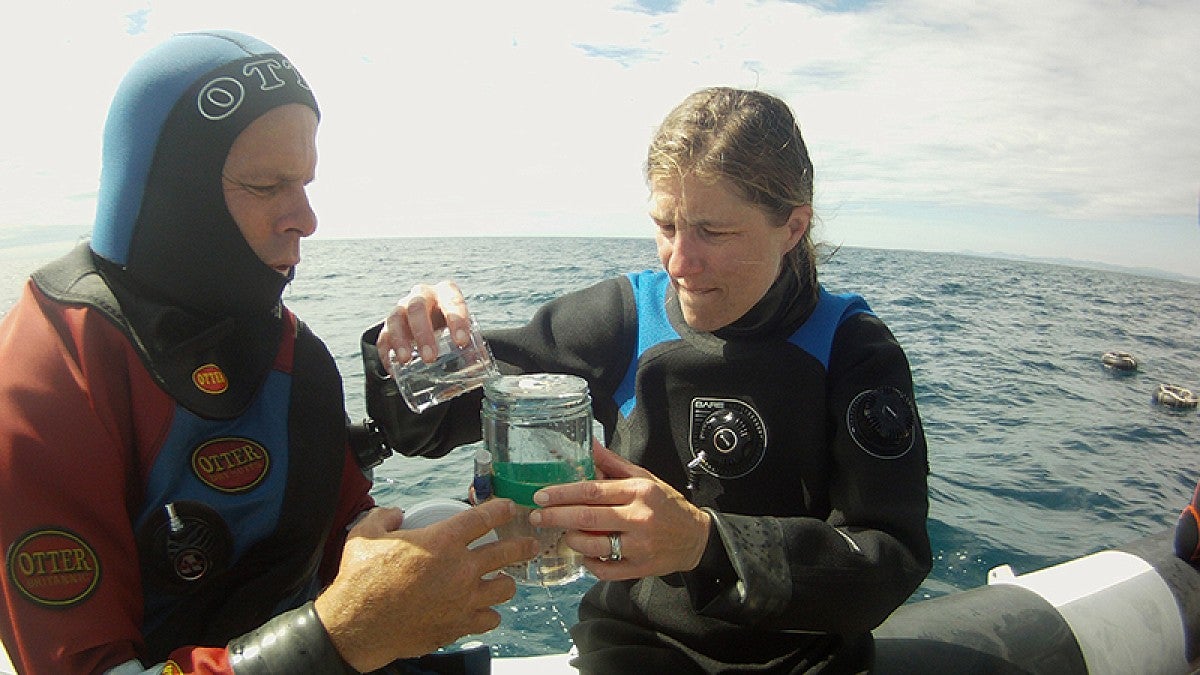Kelly Sutherland, an associate professor of biology, has been awarded the Alec and Kay Keith Professorship for her research on the motion of gelatinous zooplankton.
Her research has led to a large body of well-cited work as well as external funding to support graduate students. Sutherland's work analyzing how jellies move and her contribution to Oregon Sea Grant’s Field Guide to Oregon Jellies led to her nomination for the Keith Professorship.
The Alec and Kay Keith Professorship was established in 1994 to support senior faculty members in biology, chemistry and physics at the University of Oregon. Alec Keith was a UO alumnus of 1966, earning his doctorate in biology.
Evan Keith, the son of Alec and his wife, Kay, earned three degrees at the UO: a bachelor’s in physics in 1988, a doctorate in physics in 1994, and a master’sin mathematics in2005. The Keith Professorship goes to a faculty member in biology, chemistry, or physics.
The Keith Professorship provides recipients a salary stipend and research support for six years. Sutherland said the professorship will enable her research group to further their work on jet propulsion, a method aquatic animals use to propel themselves through water, in marine plankton.
The team is specifically focusing on colonial organisms called siphonophores, which look like a string of pulsing jellyfish, and how they coordinate multiple swimming units to swim efficiently. Compared to single jellyfish, colonial jellies are able to swim better than their solitary counterparts, and Sutherland’s group wants to identify which aspects of body motion and swimming account for such effective swimming in the colonies.
“It’s an honor to have been selected for this professorship from among my creative and inspiring colleagues in the natural sciences,” Sutherland said. “In addition to hard work, I value ingenuity. My favorite part of the scientific process is coming up with a good question, then figuring out how to tackle the question and where to dive into the work.”
The jelly colonies can migrate hundreds of meters each day, which is the equivalent of a human running a daily marathon. In order to figure out what aspects account for the jelly’s successful swimming ability, Sutherland’s team will develop diver-operated camera systems to observe the animals.
Oceanic plankton are fragile and hard to access. Sutherland said the professorship will allow her to explore new field sites, giving her more access to the jellies. As travel restrictions are lifted over the next year, Sutherland plans to look at field sites along the Kona coast of Hawaii and in Palau.
“We often bring the laboratory to the animals since they live in out-of-the-way locations in the open ocean,” she said. “This professorship will enable me to try things that might be too risky for grant funding agencies to support, so I’m looking forward to the research to come.”
—By Victoria Sanchez, University Communications


